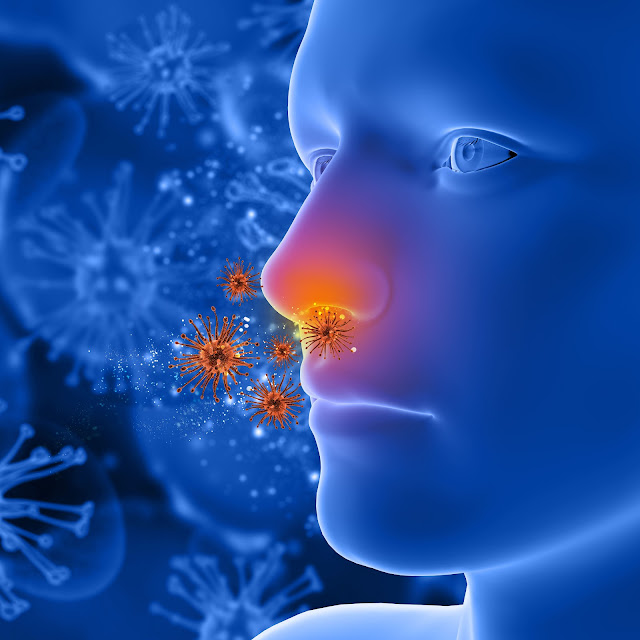symptoms of sinus infection in adults
Acute Sinusitis: Understanding Symptoms, Causes, and Effective Management
Introduction
Sinus infections, also known as sinusitis, can be a frustrating and painful experience for adults. The sinuses are hollow cavities located in the facial bones, and when they become inflamed or infected, it can lead to a range of uncomfortable symptoms. In this comprehensive guide, we will explore the symptoms of sinus infection in adults, delve into the causes of this condition, discuss possible treatment options, and provide helpful tips for prevention.
Understanding Acute Sinusitis
Acute sinusitis, often referred to as a sinus infection, is a temporary inflammation of the sinuses, which are hollow cavities located around the nasal passage. When the sinuses become infected or blocked, it can result in the accumulation of mucus, leading to discomfort and other troublesome symptoms.
Symptoms of Acute Sinusitis
Identifying the symptoms of acute sinusitis is crucial for prompt diagnosis and appropriate management. While the severity of symptoms may vary from person to person, some common indicators of acute sinusitis include:
Nasal Congestion: The feeling of a stuffy or blocked nose is a prevalent symptom of acute sinusitis. It occurs due to the inflammation and swelling of the sinus tissues.
Facial Pain and Pressure: Pain and pressure around the cheeks, forehead, and eyes are commonly reported by individuals experiencing acute sinusitis. This discomfort can worsen when bending forward or lying down.
Nasal Discharge: A thick, discolored nasal discharge, often green or yellow, may be present in individuals with acute sinusitis. This discharge results from the increased production of mucus in response to the infection.
Reduced Sense of Smell and Taste: Many individuals with acute sinusitis experience a temporary loss of smell (anosmia) and taste (ageusia). This is typically due to the blockage and inflammation affecting the olfactory nerves.
Cough and Sore Throat: Postnasal drip, which occurs when mucus drips down the throat from the nose, can lead to a persistent cough and a scratchy or sore throat.
Causes of Acute Sinusitis
Acute sinusitis can arise from various factors, each contributing to the inflammation and subsequent infection of the sinuses. Some common causes include:
Viral Infections: The majority of acute sinusitis cases are triggered by viral infections, such as the common cold or influenza. These infections can cause nasal inflammation and hinder proper sinus drainage.
Bacterial Infections: In some cases, acute sinusitis may develop as a secondary infection following a viral infection. Bacteria can invade the sinuses, leading to prolonged inflammation and symptoms.
Allergic Reactions: Allergies to pollen, dust mites, pet dander, or other environmental allergens can cause the sinuses to become inflamed and contribute to the development of acute sinusitis.
Nasal Abnormalities: Structural issues within the nasal cavity, such as a deviated septum or nasal polyps, can obstruct proper sinus drainage and increase the risk of sinusitis.
Effective Management of Acute Sinusitis
Managing acute sinusitis involves a combination of self-care measures and, in some cases, medical intervention. Here are some strategies that can aid in relieving symptoms and promoting recovery:
- Nasal Irrigation: Saline nasal irrigation using a neti pot or a nasal spray can help clear mucus and reduce nasal congestion, providing relief from symptoms.
Steam Inhalation: Inhaling steam, either from a warm shower or a bowl of hot water, can help moisten the nasal passages and alleviate congestion.
Pain Relievers: Over-the-counter pain relievers, such as ibuprofen or acetaminophen, can help manage facial pain, pressure, and headaches associated with acute sinusitis.
Rest and Hydration: Ample rest and proper hydration can aid in the body's recovery process, promoting overall well-being and supporting the immune system.
Antibiotics (if necessary): In cases where bacterial infection is present or symptoms persist, a healthcare professional may prescribe antibiotics to combat the infection and alleviate symptoms.
Allergy Management: For individuals with allergies contributing to acute sinusitis, identifying and avoiding allergens can help prevent recurring episodes. Consultation with an allergist may be beneficial in such cases.
When to Seek Medical Attention
While most cases of acute sinusitis can be managed effectively at home, certain circumstances warrant medical attention. It is advisable to seek professional care if:
- Symptoms persist for more than 10 days or worsen over time.
- Severe headaches, high fever, or persistent toothache are experienced.
- Vision changes or swelling around the eyes occur.
- Symptoms significantly impact daily activities and quality of life.
Remember, timely medical intervention can prevent complications and ensure appropriate treatment.
Conclusion
Disclaimer: The information provided in this article is for educational purposes only and should not substitute professional medical advice. Consult a healthcare professional for personalized guidance and treatment options.

.jpg)